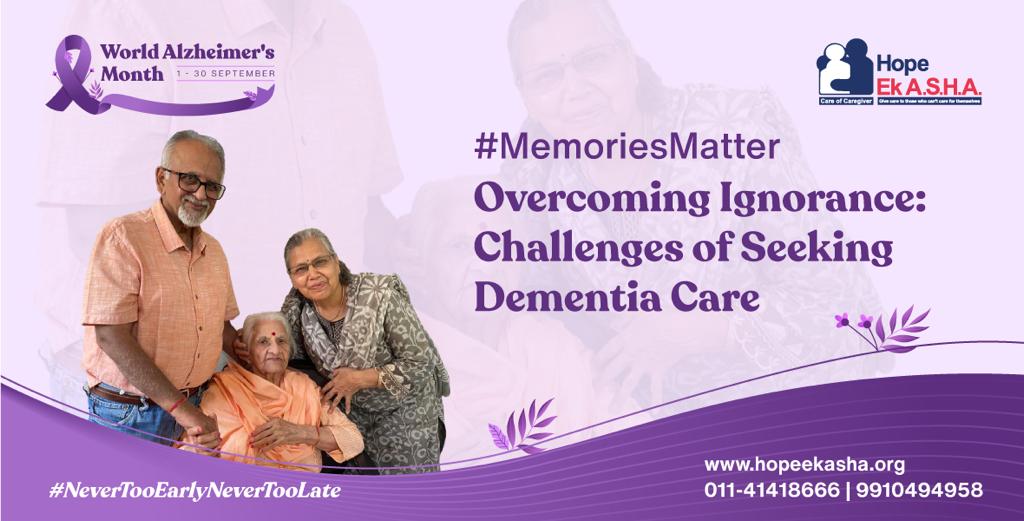
Overcoming Ignorance: Challenges Of Seeking Dementia Treatment
My mother started displaying erratic behaviours around 2013-2014, and we soon learned that this was indicative of the onset of Dementia. It started with her accusing us of stealing her belongings, and soon escalated to her spreading unfound rumours about us. Although we felt frustrated initially, we soon recognised the need for psychiatric intervention. Even after we made the decision to seek professional assistance for her condition, convincing our sceptical relatives proved challenging.
To compound our problems, in 2017, when my wife was diagnosed with breast cancer, for which she underwent surgery and gruelling chemotherapy. As it became harder to take care of my mother, my wife was simultaneously experiencing immense pain and hair loss- an experience which was nothing short of being traumatizing. Despite my mother experiencing hallucinations, our relatives remained resistant to professional intervention.
Somehow, we managed to persuade my uncle to accompany us to Fortis Hospital, Noida, and my mother’s treatment finally commenced. However, her condition worsened during the COVID-19 pandemic; she refused to sleep, used profanity, and attempted to leave our home on the bitterly cold nights of January 2021. COVID restrictions on in-person doctor visits compounded our struggles.
Constant tension, our own health problems, and sleep deprivation from having to care for my mother drained our energy. We were confined to our home, unable to escape fears of her security. Fortunately, we were able to hire caregivers to tend to my mother. However, they were not specialized in care for Dementia patients, which manifested another hurdle for us to overcome. With our limited knowledge, we attempted to engage my mother, but this often led to more issues. In particular, she had disordered sleep, which meant more restless nights and fatigued mornings for us.
In 2022, our children- who live overseas- urged us to visit them, leading to us placing my mother under the professional care of Hope Ek A.S.H.A. for three months. When we returned, we noticed significant improvements in her. The facilitys professional management, compassionate caregivers, and a sense of family among patients, as well as the medical intervention led by Dr. Sandip Govil, transformed her behaviour. In contrast to how she was when at disease’s onset, we find her demeanour cheerful, and memory loss stabilised, which was only possible with the diligent effort of A.S.H.A.
Yet, we continue to lament the lack of societal awareness about dementia and Alzheimers. An early intervention could have spared all of us a lot of pain, but ignorance prevented us from finding the right treatment till the disease had progressed. Many caregivers and patients face turmoils similar to ours when they try to find help, and we can only hope that this state of affairs changes as awareness about Dementia and Alzheimer’s Disease increases.


